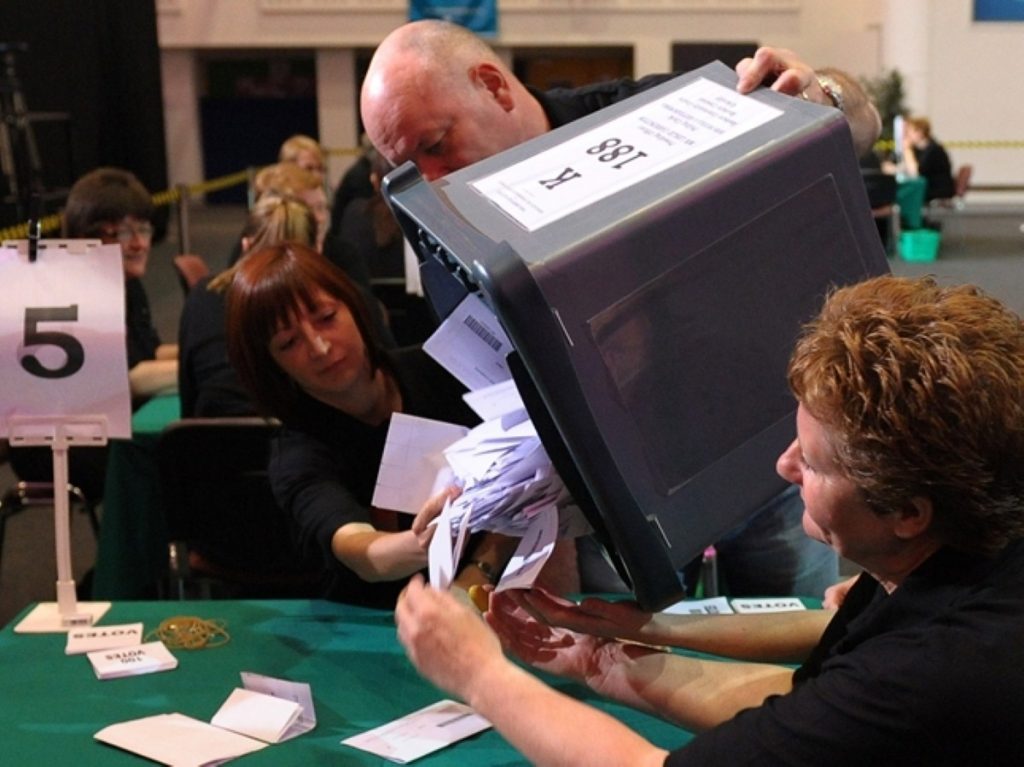Hung parliament: What happens now?
A hung parliament is now almost certainly the outcome of the general election. But what is a hung parliament, and what would it mean?
By Ian Dunt
A hung parliament occurs when no party wins an outright majority of seats. It is very common in countries like Germany or Italy, which operate under the proportional representation system, but far less common in the UK, because of the constituency link and the relative weakness of fringe parties.
What would happen in the short term? The prime minister retains his role, in what is basically a caretaker capacity. He is under no obligation to resign and David Cameron has not demanded he step down. Constitutionally, Brown gets first dibs on forming an administration. But politically, voters will probably expect Cameron to lead the way, given he won more votes.


It’s hard to predict how Brown will deal with this situation. He may try to make a deal with another party – presumably the Liberal Democrats. Alternatively, he could recognise the ‘moral right’ of the Conservatives to form a government and step aside to let that happen. This would require that the Tories secure at least 300 seats, however. Not for constitutional reasons – but because of political sentiment. Given the statements of Cabinet ministers through the evening, it seems Labour may try to secure a deal with the Liberal Democrats.
For his part, David Cameron must prove he can command the support of the Commons. He could lead a minority government, if he believes he can get enough support from opposition parties to get the Queen’s Speech through. Or he could try to get a majority through a coalition with smaller parties, such as the DUP, although this seems less likely now that the unionists have had such a torrid evening. Alternatively, Cameron could go for a coalition with the Lib Dems, but the policies of the two parties are so different one struggles to see how it would survive for long.
The Lib Dem policy agenda is far closer to Labour. But Clegg will struggle with that option given he said during the campaign that the party with the most votes and the most seats had the right to seek to form a coalition. The Lib Dem leader could become the most powerful man in the country over the next few hours, despite his disappointing election results.
There is, by the way, no statutory time limit on how long this process can take. The historical precedent is 1974 when Tory incumbent Edward Heath stayed on as caretaker and tried to secure a deal with the Liberals. He failed, and Harold Wilson took over as prime minister for Labour. But the historical comparison is, in some ways, weak. Technology has changed the political face of Britain since the 70s, and the pressure from 24-hour news channels and the internet will massively impact on how this process takes place.
With so few constitutional precedents, the public mood will be the dominant factor in party leaders’ minds as they negotiate. The markets will also play a role. Any sudden panic in the markets would hurry up the process and feed media and public pressure for a quick, politically convincing resolution. A run on sterling, a loss of the UK’s AAA credit rating or a collapse in the share market could force a quick decision.
This is not an entirely welcome factor. It would be better for the government to be formed wisely and sustainably, rather than quickly. There is no constitutional reason for this process to be rushed – it is all well within the remit of Britain’s constitutional arrangements.












